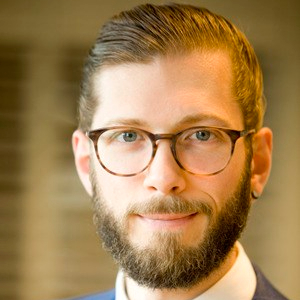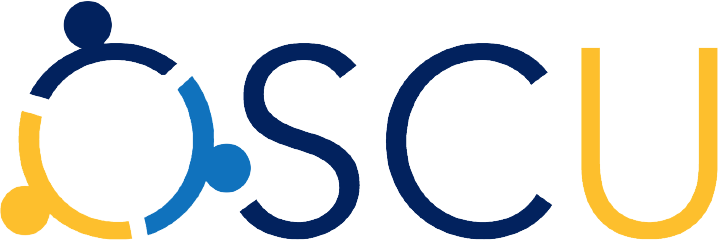News, Blog and Podcast
Introducing the OSCU Faculty Ambassadors: I. Caspar van Lissa, Faculty of Social and Behavioral Sciences

In the course of the next few months, we shall introduce the OSCU Faculty Ambassadors, so that OSCU members know whom to contact and what they can expect. Ambassadors are introduced through personal interviews.
Why did you decide to apply to become an Open Science Faculty Ambassador for the Open Science Community Utrecht?
I think the move towards Open Science and Scholarship is going to be the defining paradigm shift of this new decade. People have been advocating for it since the 1800s, and there have been many small waves of interest in Open Science since then, but only today do we have the tools and infrastructure required to implement it correctly. Thus, this time, I think the new wave of interest in Open Science will take hold and succeed. I want to be part of it when that happens, but – like many colleagues – I am so busy with teaching and my Veni-funded research that I could not afford to spend the amount of time on it that I wanted. So I applied, hoping for the opportunity to devote more of my time to promoting Open Science! It is really unique that this is a fully funded position; that means that UU considers Open Science to be an important priority, and Loek Brinkman and Anita Eerland deserve a lot of credit for making that happen.
Why is Open Science relevant for your faculty? Which element do you think is most important?
The fact that Open Science is gaining momentum now is thanks, in large part, to social scientists. After several crises, like the Diederick Stapel affaire and the replication crisis, social scientists called for Open Science as an “antidote” to expose scientific fraud and abuse. I think that’s excellent, but I also believe that the vast majority of researchers are well-intentioned. Therefore, I’m much more excited about the opportunities provided by Open Science. By preregistering studies, we can eliminate publication bias, and reviewers can help improve study designs before spending money on data collection. By publishing data and code, interested readers can correct mistakes and explore alternative explanations. Moreover, you increase the value of your collected data by allowing others to use it for secondary analysis. By publishing open access, science becomes more inclusive: the public and other stakeholders gain access to scientific literature, as do researchers from low-income countries or underfunded universities. You can publish in FREE open access journals, or if you must publish in for-profit journals, then you can usually publish a preprint on PsyArxiv. The most important element is that openness accelerates cumulative science: people can benefit from all aspects of the work of their predecessors, and avoid mistakes that have already been made, which would otherwise disappear in the file drawer.
The most important element is that openness accelerates cumulative science: people can benefit from all aspects of the work of their predecessors, and avoid mistakes that have already been made, which would otherwise disappear in the file drawer.
Scientists are usually specialized in one or two fields. How will you represent and engage with your colleagues from different fields within the same faculty?
I’m lucky to have a truly interdisciplinary background. Starting with liberal arts & sciences at University College, then a research master’s degree in social psychology, a PhD in pedagogy, a post-doc in sociology, and now an assistant professorship in statistics. Today, I collaborate with people in all those fields, and additionally, with climate scientists, anthropologists, and urban geographers. Collaboration is the life blood of my department of Methodology and Statistics. We design methods for applied research, and providing free consultations for colleagues at all departments of the faculty is part of our job description. Thus, I think I am perfectly positioned to engage with colleagues from different fields.
You are organizing a symposium on Open Science and Scholarship for your faculty. What can we expect?
Like I said, Open Science has become so popular thanks to consistent activism of social scientists. Our faculty is very supportive of the move towards Open Science, and in fact, our Dean (Marcel van Aken) is an Open Science advocate and expert. Thus, I’m happy to say that we can expect a real tour-de-force from our faculty symposium! The program will be opened by our Dean Marcel van Aken, followed by a keynote from prof. Marcel van Assen from the Meta-research center about how openness will mend science. We proceed with six short, but information-packed presentations about various challenges and solutions in Open Science, including the pitfalls of Open Science (prof. Rens van de Schoot) how to engage the public (Madelijn Strick), preregistration for existing datasets (Stefanos Mastrotheodoros and Gaetan Mertens), the benefits of sharing materials (Anouk van Dijk and Valeria Bonapersona), free open-source research software (prof. Herbert Hoijtink), and Open Science workflows (Caspar van Lissa).
My personal goal is to develop a super simple, standard open workflow that anyone can use with an afternoon’s practice to meet the requirements of ‘Open Science’.
What will you do as an Ambassador, besides organizing a symposium?
My personal goal is to develop a super simple, standard open workflow that anyone can use with an afternoon’s practice to meet the requirements of ‘Open Science’. I find that many people are highly motivated to ‘do Open Science’, but it’s often difficult to find out how. So my solution is to make it easier to get started. I’ve written an R-package that includes an Rstudio project template completely optimized for Open Science, and written a tutorial paper describing the workflow. These can be found at https://osf.io/zcvbs/. For the next months, anyone who wants to contribute to this project is welcome to join as a coauthor. Many people in our community have expertise that complements mine, and I want to ‘crowdsource’ the writing to make this a really robust tutorial. Aside from that, I’m participating in several conference sessions about Open Science, and in each of these sessions, I want to crowdsource all challenges and solutions of the attendees. The idea is, again, that their contributions are incorporated into new papers to address field-specific Open Science challenges. Everyone who contributes can be a coauthor.
Which challenges do you expect to face in the road ahead?
Within our University, I foresee few challenges. There is so much momentum for Open Science, with several complementing programs: The Open Science platform constitutes a top-down advisory organ, the Open Science program coordinates university-wide actions with regard to Open Access, FAIR data and software, Public Engagement and Rewards and incentives, and the Open Science Community harnesses grass-roots support amongst employees. The more important challenges I think are external. First, there will be a difficult shift away from traditional for-profit publishing towards free open access. The universities are underfunded, and we are losing too much money to publishers while the tools already exist to host free open access journals (like our own Journal of Trial and Error). Secondly, there is a tension between the ideals of open access, and increasing ethical scrutiny on data collection. Universities risk losing the battle for high-quality data to companies with far less ethical scruples. I think the solution is to revise data protection laws. European citizens should own their data, and be able to license it for third-party use. This way, researchers would be able to request, e.g., all social media data and obtain it directly from that individual. Companies would be required to go through the same route. Considering how valuable the industry around data science has become, it is only fair that people should control who accesses their information.
Thank your for reading this blog entry. If you want to stay updated, do keep an eye on this website, the Open Science Community Utrecht newsletter and follow us on Twitter.

